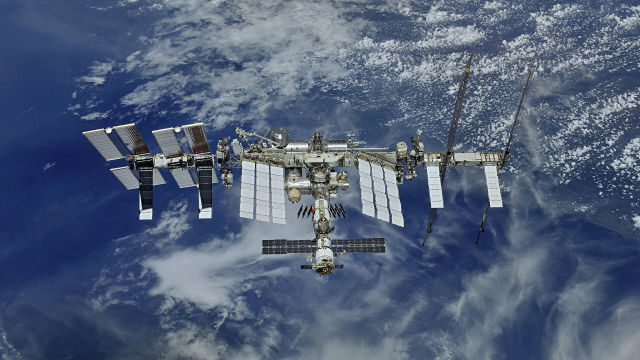The rocket and space corporation Energia called one of the main problems the termination of the release of the element base, which existed during the development of the first modules of the Russian segment of the station
MOSCOW, October 9. /TASS/. The process of replacing components on the Russian segment of the International Space Station (ISS) has become significantly more complicated due to the sanctions imposed on the Russian Federation, as well as the termination of the existence of enterprises or their falling under the jurisdiction of other countries, including Ukraine. This is stated in the material of the employees of the rocket and space corporation "Energia", published in the journal "Space Technology and Technologies" (the publication of the corporation).
"A number of devices and blocks were manufactured at enterprises that ceased to exist or fell under the jurisdiction of other states (Ukraine), or under sanctions that do not allow the use of the required components (element base) of imported production. This led to a shortage of CI for replacement and significantly complicated the processes of replacing CI on the ISS RS modules during the flight, increased the costs and duration of work on the production of CI," the material says.
According to experts, many components have already been discontinued. One of the main problems is the termination of the release of the element base, which existed during the development of the first modules of the ISS RS. At the moment, it is noted in the material, out of 1,727 elements of the Russian segment of the ISS, for which their flight resource is recorded, as of December 31, 2020, "641 elements have exhausted their resource (or 37%)."
"The analysis of the technical condition of the ISS RS carried out at RSC ENERGIA shows the possibility of extending the life of the ISS RS until 2024 inclusive," the journal says. This requires constant monitoring of the technical condition of systems and equipment, routine maintenance, as well as timely repairs to eliminate detected failures and malfunctions.
In April, Russian Deputy Prime Minister Yuri Borisov said that the state of the ISS leaves much to be desired, so Russia can focus on creating its own orbital station. RSC Energia was tasked with ensuring the readiness of the first module for the new Russian orbital station in 2025, it will be a scientific and energy module, which was previously supposed to be launched to the ISS in 2024.

